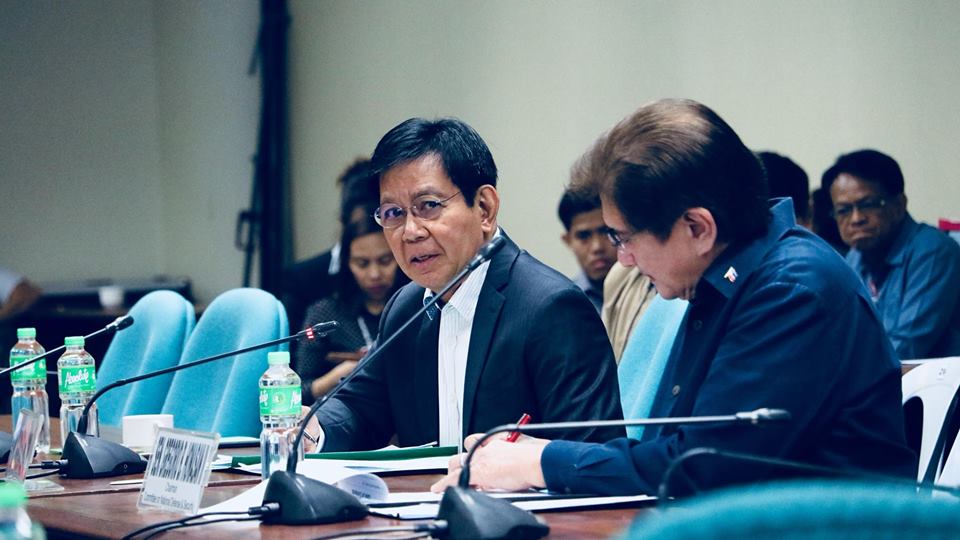News
Politics to blame on killings of local execs: Lacson

“Especially in local politics, if the political battle is very fierce, they resort to killing each other,” Lacson said. (Photo: Senator Ping Lacson/Facebook)
MANILA — The recent killings of local executives could be attributed to politics and should not be blamed to President Rodrigo R. Duterte’s strong stand against criminality, Senator Panfilo Lacson said Wednesday following the assassination of two mayors this week.
On Monday, Mayor Antonio Halili of Tanauan City, Batangas was shot dead during the flag-raising ceremony at the city hall.
The following day, General Tinio, Nueva Ecija Mayor Ferdinand Bote was assassinated outside the National Irrigation Administration (NIA) compound in Cabanatuan City.
Administration critics were quick to blame Duterte for their deaths, alleging that his strong stand against criminals has created a climate of impunity and that the recent events were “inspired” by the President’s supposed threats against local executives engaged in criminal activities or are coddling criminal syndicates.
Lacson, however, belied the allegations, pointing out that local politics may have played a big hand in the recent killings.
“No, I don’t think so. Hindi doon nanggagaling yan (It’s not where it came from),” Lacson said in an ambush interview at the Senate.
“Especially in local politics, if the political battle is very fierce, they resort to killing each other,” he added.
It is noteworthy that mid-term elections are barely 11 months away and local politicians are already gearing up for the upcoming polls.
The deaths of Halili and Bote were the third and fourth recorded killings of local politicians this year.
Bote, a first term mayor, is a party-mate of Duterte at the PDP while Halili has been included on the government’s narco list.
Last May 12, former La Union second district representative Eufranio Eriguel was gunned down while attending a barangay election gathering while Buenavista, Bohol Mayor Ronald Tirol was shot dead at a cockpit arena last May 27.
Prior to their deaths, Halili, Eriguel and Tirol have been receiving death threats -even before Duterte came to power.
Eriguel and Tirol survived previous attempts on their lives; with the former surviving a bomb attack in April 2016, and the latter surviving an assassination attempt, also in a cockpit arena, in 2014.
But while Lacson believed that local politics might be behind the assassinations, he said it is incumbent upon the PNP to act on it.
“How? Control the movement of firearms. There is a proliferation of loose firearms in our country. The PNP could not even give us the number of loose firearms,” the former PNP chief-turned lawmaker said, as he reiterated his earlier call for the police to implement stricter gun controls.
In calling for a firearms control, Lacson feared the numerous loose firearms, if left unchecked, would eventually lead to a breakdown of law and order in the country.
Lacson said control measures should not be limited to loose firearms, but would also limit the carrying of firearms in public to uniformed personnel and law enforcers on actual operations.
“Even when I was Chief PNP, I was looking at the time when people will just instinctively treat a person carrying firearms as a criminal element. In other words, only those in military or police uniform, and those who are in civilian clothes but actually performing overt operations against criminal elements should be allowed to carry firearms,” he said.
He said this would change the existing mindset that a person in civilian clothes carrying a gun in public is instinctively assumed to be a policeman.





















